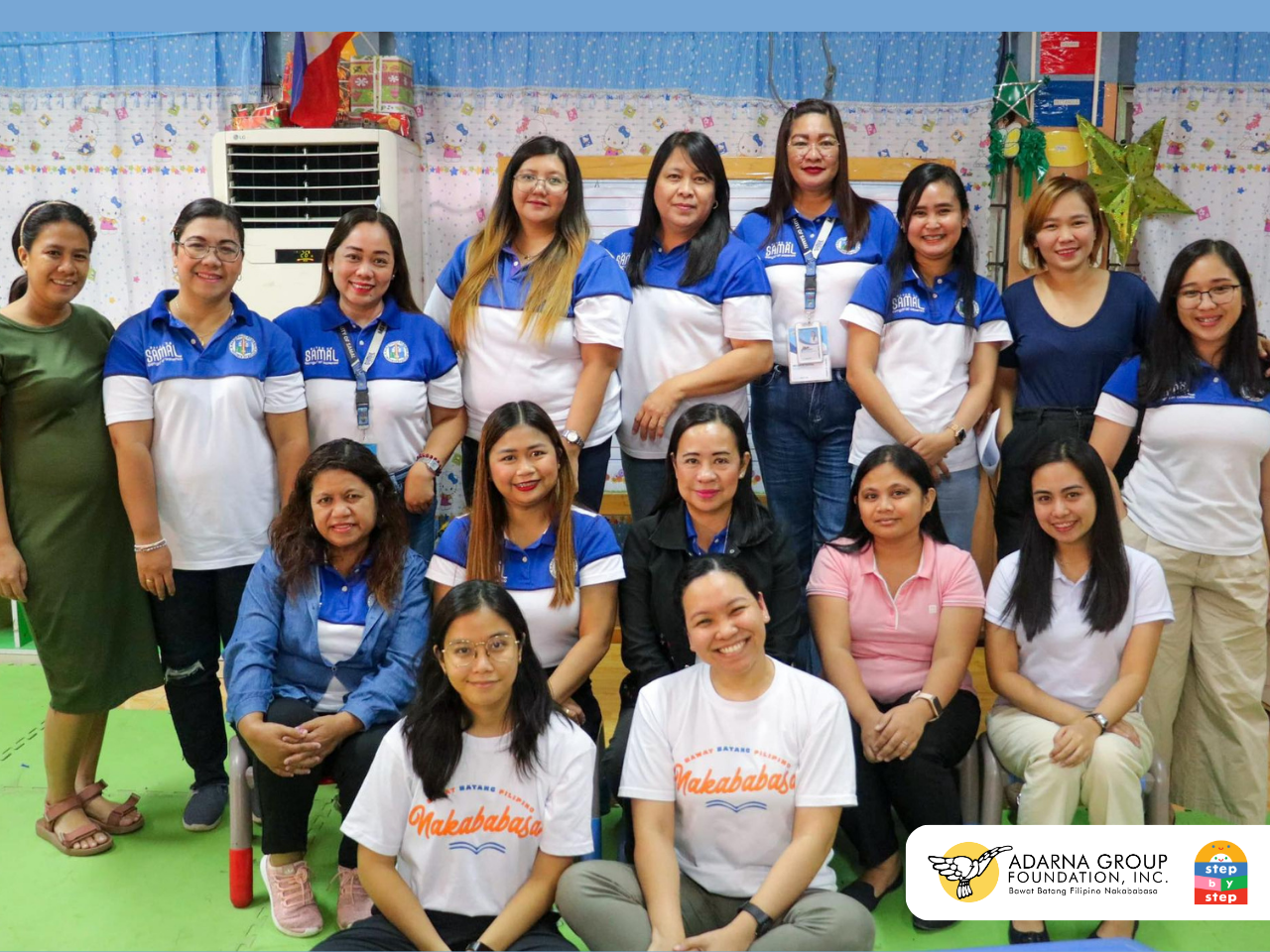Caring for Our Country’s Day Care Workers




IT TAKES A BIG HEART TO NURTURE LITTLE MINDS
A common misconception about day care workers, formally known as child development workers, is that their work must be easy. Since people believe that day care workers merely dance, sing, and read to children, they often think that this is a job that anyone can do. Day care centers, formally known as Child Development Centers, are more than just a place for working parents to leave their children— and day care workers do much more than keep them busy.
For children from less privileged backgrounds, a neighborhood day care center can be a colorful treasure trove of books and toys they do not have at home. The center provides them with the opportunity to run freely and enjoy space that a tight dwelling cannot offer. In this safe environment, they are free to be children. Here, kids without siblings learn to share, communicate, work together, and make friends with others their age. While some children may enter the day care level already with a mastery of numbers and letters, these centers allow other children to experience being taught with patience for the first time. For children of all backgrounds, there is much to learn here–-and for the day care worker in charge, this can often be a huge responsibility with minimal compensation.
TAKING ON THE CHALLENGE
Becoming a day care worker means a continuous commitment to learning. Here, day care workers brainstorm ideas in a capacity-building activity led by the Adarna Group Foundation, Inc.
In the Philippines, day care workers are capable individuals appointed by local government officials to teach children between the ages of 0 to 4 years old at their local day care center. While a formal background in early childhood care and development (ECCD) is not required, appointees must train under an experienced day care worker and pass a comprehensive accreditation process before managing their own classroom.
According to the Early Years Act of 2013 (Republic Act 10410), during accreditation aspiring day care workers are evaluated based on seven domains of the ECCD Competency Standards for Child Development Teachers. Depending on the rating received, the accreditation of both day care centers and day care workers may be valid for a minimum of 3 years and a maximum of 5 years. These standards include criteria on:
Child growth, development, and learning
Health, nutrition, safety, and well-being
Learning environment and experiences
Assessment and reporting
Curriculum
Family involvement and community linkages
Personal and professional development
For newly-appointed day care workers, however, one month of training under supervision is not nearly enough for all there is to know and many workers find this steep learning curve difficult.
BRIDGING THE KNOWLEDGE GAP
Day care workers Shiella Ferrer and Julieta Cuchapin share their insights and experiences with an AGFI staff after the Handang Magbasa Q4 Community Visit in Anao, Tarlac.
“Akala ko magtuturo lang naman, ang dami dami pala kailangan gawin,” says Teacher Shiella Marie G. Ferrer, referring to the numerous reports, learning materials, and lesson plans she had to navigate during her first year teaching. Despite being a parent and volunteer teacher in her church prior to her appointment as a day care worker, there was still much for her to learn. “Pero sa tulong ng mga kasama ko, ng mga superior ko at mga nauna sa akin, yun natutuhan naman po” she adds.
As for Teacher Julieta B. Cuchapin, having a background in Secondary Education did not mean things were automatically easier for her. “Nasanay po ako sa mga malalaking bata, mga pang high school. Kaya noong first day ko po, hindi ko alam kung paano ako magsisimula,” she recalls. Unlike students in their adolescence, little children are more easily distracted and energetic, making each new day unpredictable despite a teacher’s initial plans. Capturing and retaining their attention throughout a lesson is a challenging endeavor. “Kaya nag-undergo po ako ng training at seminar sa early childhood education hanggang sa may Masteral din po ako funded ng ECCD Council,” Teacher Julieta adds. With over 20 years of experience, she now works at the National Child Development Center in Tarlac.
Over the years, studies on early childhood education in the Philippines confirmed the need for additional training to support day care workers. Aside from additional pre-service and in-service upskilling, there is also a need for attention to the design and delivery of these trainings to make them more robust and systematic. Examples of much-needed topics include the use of technology, ideas for culturally appropriate activities, and classroom management strategies. In response to this need, the Adarna Group Foundation, Inc. developed the Handang Magbasa program for day care workers.
In the National Child Development Center of Samal, Bataan, day care workers listen intently as a staff from the Adarna Group Foundation, Inc. demonstrates the use of Handang Magbasa training videos.
Through Handang Magbasa, day care workers just like Teacher Shiella and Teacher Julieta gather with their colleagues to learn evidence-based practices delivered through detailed manuals and engaging training videos. Using this approach, day care workers participating in the program do not merely learn together but also learn from each other. Like other components of the Foundation’s Step by Step Approach, the Handang Magbasa program is designed to be comprehensive and tailor-fit to the community’s needs. Given its in-depth nature, each Hadang Magbasa implementation lasts several months and is made possible through the steadfast support of the local government units and implementing partners. At the end of each Handang Magbasa implementation, the Foundation aims to leave both new and experienced day care workers with increased confidence in their abilities to nurture a generation of eager readers. At present, the Foundation has three ongoing Handang Magbasa program implementations.
For more information on how you can bring the Adarna Group Foundation, Inc.’s programs to your community, send us an email at adarnagroupfoundation@agfi.com.ph.



